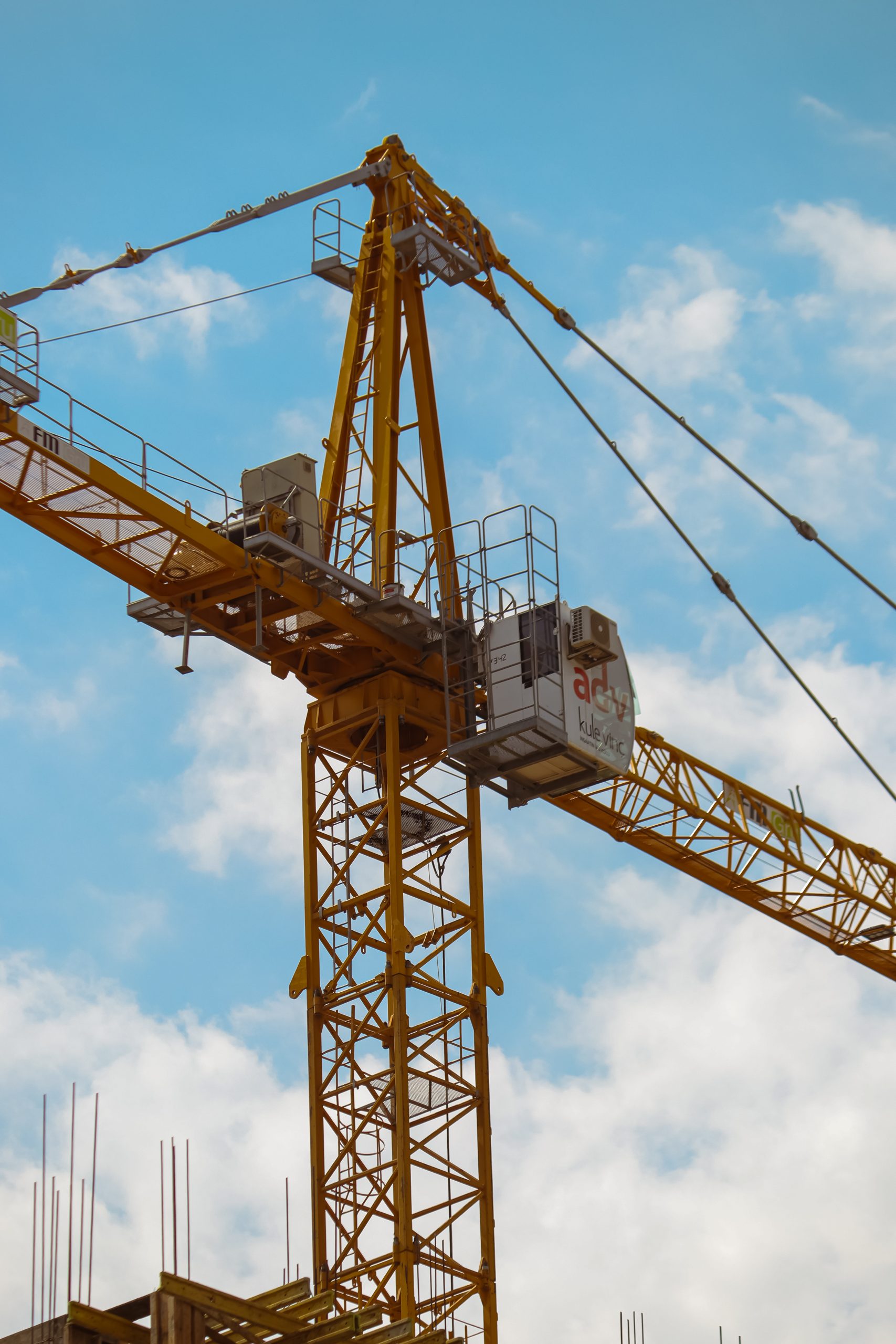Are you in need of legal advice related to construction procurement? Look no further. This article on Construction Procurement Law is here to address your concerns and provide you with the guidance you need. Whether you are a contractor, developer, or a property owner, understanding the intricacies of procurement law is vital to ensure a smooth and successful construction process. From bidding procedures to contract negotiations, this article will delve into the various aspects of construction procurement, covering common legal concerns and offering reassurance and guidance. So, if you find yourself seeking legal assistance, don’t hesitate to call the attorney listed on our website. They are here to help you navigate the complexities of construction procurement law.

Overview of Construction Procurement Law
Construction procurement law refers to the legal framework that governs the process of acquiring construction services and materials in the construction industry. It encompasses a wide range of regulations and principles that aim to ensure fairness, transparency, and accountability in the procurement process.
Definition of Construction Procurement Law
Construction procurement law can be defined as the body of laws, regulations, and policies that govern the procurement of construction services and materials. It covers various aspects of the procurement process, including bidding, contract formation, and dispute resolution.
Importance of Construction Procurement Law
Construction procurement law plays a crucial role in the construction industry by establishing a fair and competitive environment for contractors, subcontractors, suppliers, and consultants. It helps to prevent bid-rigging, collusion, conflicts of interest, and other unethical practices, thereby ensuring a level playing field for all participants.
By promoting transparency and accountability, construction procurement law enhances trust and confidence in the procurement process. It also helps to protect the rights and interests of both the contracting authority (client) and the contractors, ensuring that contracts are awarded based on merit and value for money.
Role of Construction Procurement Law in the Construction Industry
Construction procurement law serves as a regulatory framework that guides the conduct of parties involved in construction procurement. It sets out the rights and obligations of all stakeholders, including the contracting authority, contractors, subcontractors, suppliers, and consultants.
By providing a legal framework for procurement, construction procurement law helps to resolve disputes, enforce contracts, and safeguard the interests of all parties involved. It also helps to promote efficiency, effectiveness, and competitiveness in the construction industry by establishing clear rules and standards for procurement processes.
Common Legal Concerns in Construction Procurement Law
In construction procurement, there are several common legal concerns that stakeholders should be aware of. These concerns include bid-rigging and collusion, conflicts of interest, contractual disputes, and bid protests.
Bid-Rigging and Collusion
Bid-rigging and collusion refer to illegal practices where contractors conspire to manipulate the bidding process to secure contracts at artificially high prices or to exclude competitors from the bidding process. These practices undermine fair competition and can lead to inflated costs for the contracting authority.
Construction procurement law addresses bid-rigging and collusion by imposing strict penalties for anti-competitive behavior and by promoting transparency in the bidding process. Contractors are required to submit bids independently and any form of collusion can result in severe legal consequences.
Conflicts of Interest
Conflicts of interest may arise when individuals involved in the procurement process have personal or financial interests that could compromise their objectivity or impartiality. This can include situations where decision-makers have personal relationships or financial ties with particular contractors or suppliers.
Construction procurement law requires stakeholders to disclose any potential conflicts of interest and take appropriate measures to mitigate them. This can include recusal or abstaining from decision-making processes where a conflict exists. By addressing conflicts of interest, construction procurement law helps to ensure fair and unbiased decision-making.
Contractual Disputes
Contractual disputes are one of the most common legal concerns in construction procurement. These disputes can arise from issues such as breaches of contract, delays, defective work, or payment disputes. Resolving these disputes can be time-consuming and costly, impacting the progress and success of construction projects.
Construction procurement law provides mechanisms for resolving contractual disputes, including negotiation, mediation, arbitration, or litigation. It establishes the rights and obligations of parties involved in the contract and provides a legal framework for enforcing contract terms.
Bid Protest
Bid protests occur when a bidder challenges the award of a contract to another bidder. This can happen when the protesting bidder believes that the procurement process was unfair, biased, or in violation of procurement laws and regulations. Bid protests can result in delays and additional costs for the contracting authority.
Construction procurement law facilitates the resolution of bid protests by providing mechanisms for review and appeal. These mechanisms allow bidders to seek remedies if they believe that the procurement process was improperly conducted. By addressing bid protests, construction procurement law helps to ensure transparency and fairness in the awarding of contracts.
Key Principles of Construction Procurement Law
Construction procurement law is guided by several key principles that underpin its purpose and objectives. These principles include fair and open competition, transparency and accountability, equal treatment, and value for money.
Fair and Open Competition
Fair and open competition is a fundamental principle of construction procurement law. It ensures that all contractors have an equal opportunity to compete for contracts based on their qualifications, experience, and capabilities. Fair and open competition promotes efficiency, innovation, and cost-effectiveness in the procurement process.
Transparency and Accountability
Transparency and accountability are essential for maintaining public trust in the procurement process. Construction procurement law requires that the procurement process be conducted in a transparent manner, allowing stakeholders to understand how decisions are made and funds are allocated. Accountability ensures that the contracting authority and other stakeholders are responsible for their actions and decisions.
Equal Treatment
Equal treatment ensures that all contractors, subcontractors, suppliers, and consultants are treated fairly and without discrimination. Construction procurement law prohibits unfair practices, such as favoritism or bias, and establishes equal opportunities for all participants. This principle promotes inclusivity, diversity, and non-discrimination in the construction industry.
Value for Money
Value for money is a key consideration in construction procurement. Construction procurement law requires that contracts be awarded based on the best combination of price and quality, ensuring that taxpayers’ money is spent wisely. Value for money promotes efficiency, effectiveness, and quality in construction projects.
Types of Construction Procurement Methods
In construction procurement, various methods can be used to acquire construction services and materials. The choice of procurement method depends on several factors, including project requirements, cost considerations, and the desired level of involvement of the contracting authority.
Traditional Procurement
Traditional procurement is the most commonly used method in the construction industry. Under this method, the contracting authority is responsible for designing the project and preparing detailed specifications. Contractors then submit bids based on these specifications, and the lowest qualified bidder is awarded the contract.
Design-Build
Design-build is a procurement method where the contracting authority enters into a single contract with a design-build entity. This entity is responsible for both the design and construction of the project. Design-build can streamline the procurement process and reduce project delivery time, as it eliminates the need for separate design and construction contracts.
Construction Management
Construction management involves the appointment of a construction manager who oversees the procurement process on behalf of the contracting authority. The construction manager provides expertise in project planning, design coordination, and contractor selection. This procurement method allows for greater flexibility and collaboration between the contracting authority and the construction manager.
Public-Private Partnerships (PPP)
Public-private partnerships (PPPs) are contractual arrangements between a public entity and a private sector party. Under a PPP, the private sector party is responsible for the financing, design, construction, operation, and maintenance of a public infrastructure project. PPPs can provide innovative funding solutions and transfer certain risks to the private sector.
Legal Framework for Construction Procurement Law
Construction procurement law is governed by a combination of national and international laws, regulations, and government policies. These legal frameworks provide guidelines and standards for the procurement process and help to ensure consistency and compliance with legal requirements.
National and International Laws and Regulations
National laws and regulations play a vital role in shaping construction procurement. These laws can vary from country to country but generally cover aspects such as procurement procedures, anti-corruption measures, labor regulations, and contract law. International laws and regulations, such as those established by international organizations like the World Bank or the United Nations, may also influence construction procurement in certain contexts.
Government Policies and Guidelines
Government policies and guidelines provide additional guidance and requirements for construction procurement. These policies can include sustainability standards, social procurement initiatives, or guidelines for promoting local content and diversity. Government policies and guidelines help to align construction procurement with broader national objectives and priorities.
Procurement Process in Construction
The procurement process in construction typically involves several stages, each with its own requirements and considerations. These stages include pre-qualification, the request for proposal (RFP), evaluation and selection of bids, and contract formation.
Pre-Qualification Stage
The pre-qualification stage involves the assessment of potential contractors’ qualifications, experience, and financial capacity. Contractors are required to submit pre-qualification documents, which are evaluated by the contracting authority to determine their eligibility to participate in the procurement process.
Request for Proposal (RFP)
The request for proposal (RFP) stage is where the contracting authority provides detailed project requirements and invites qualified contractors to submit proposals. The RFP includes specifications, project scope, evaluation criteria, and contract terms and conditions. Contractors are required to submit technical and financial proposals, which are evaluated based on predetermined criteria.
Evaluation and Selection of Bids
The evaluation and selection of bids are critical stages in the procurement process. The contracting authority evaluates the submitted bids based on predetermined criteria, such as price, technical capability, and project approach. The bid evaluation process should be transparent and consistent to ensure fairness and accountability.
Contract Formation
Once the evaluation is complete, the contracting authority enters into a contract with the successful bidder. The contract includes terms and conditions, project deliverables, payment terms, and dispute resolution mechanisms. Contract formation requires negotiation and agreement between the contracting authority and the contractor.

Key Participants in Construction Procurement
The construction procurement process involves various key participants who play important roles in ensuring the successful completion of construction projects. These participants include the contracting authority (client), contractor, subcontractors and suppliers, and consultants.
Contracting Authority (Client)
The contracting authority, also known as the client, is the entity or organization that requires construction services or materials. The contracting authority initiates the procurement process, defines project requirements, and selects the contractor. The contracting authority is responsible for ensuring that the procurement process is conducted fairly and in accordance with legal requirements.
Contractor
The contractor is the entity or organization that is responsible for the construction work. The contractor is selected through the procurement process and enters into a contract with the contracting authority. The contractor is responsible for completing the construction project according to the specifications, on time, and within budget.
Subcontractors and Suppliers
Subcontractors and suppliers are entities or organizations that provide specialized services or materials to support the construction project. Subcontractors are hired by the main contractor to perform specific tasks, while suppliers provide materials, equipment, or supplies. Subcontractors and suppliers play a crucial role in the successful delivery of construction projects.
Consultants
Consultants are professionals or firms that provide expertise and advice in specific areas, such as design, engineering, or project management. Consultants may be engaged by the contracting authority or the contractor to provide technical support and ensure compliance with standards and regulations. Consultants contribute to the successful implementation of construction projects.
Challenges and Pitfalls in Construction Procurement
Construction procurement faces various challenges and pitfalls that can impact the success and efficiency of the procurement process. These challenges include corruption and bribery, lack of transparency, inadequate risk assessment, and insufficient competition.
Corruption and Bribery
Corruption and bribery pose significant risks in construction procurement. These unethical practices can lead to unfair contracting decisions, inflated costs, and poor-quality construction work. Corruption and bribery can undermine public trust, impact project outcomes, and result in financial loss for both the contracting authority and the public.
Construction procurement law incorporates anti-corruption measures to prevent and deter corruption and bribery. These measures include strict penalties, transparency requirements, and integrity checks during the procurement process.
Lack of Transparency
Lack of transparency in the procurement process can create opportunities for unfair practices and undermine the credibility of the process. Without transparency, stakeholders may not have access to the necessary information to assess the fairness of the process or to hold the contracting authority accountable.
Construction procurement law promotes transparency by requiring the disclosure of information, the use of open and competitive bidding processes, and the provision of clear and accessible procurement documentation. Transparent procurement processes help to build trust, ensure accountability, and encourage fair competition.
Inadequate Risk Assessment
Inadequate risk assessment can lead to unforeseen challenges and delays in construction projects. Failure to identify and manage risks can result in cost overruns, disputes, and diminished project performance. Risk assessment is an essential part of the procurement process and should be considered from the early stages of project planning.
Construction procurement law encourages comprehensive risk assessment and management strategies. This includes identifying and evaluating potential risks, developing mitigation measures, and implementing appropriate risk allocation mechanisms in contracts.
Insufficient Competition
Insufficient competition can limit the benefits of fair and open competition in construction procurement. Limited competition reduces the options available to the contracting authority and may result in higher costs or lower-quality outcomes. It also restricts opportunities for new or smaller contractors to participate in the procurement process.
Construction procurement law promotes competition by establishing rules and standards for fair and open competition. This includes measures to prevent bid-rigging, promote diversity and inclusion, and encourage the participation of small and medium-sized enterprises. Increased competition leads to greater efficiency, innovation, and value for money in construction projects.

Contractual Considerations in Construction Procurement
Contractual considerations play a crucial role in construction procurement, as they establish the legal framework for the relationship between the contracting authority and the contractor. Key contractual considerations include contract terms and conditions, dispute resolution mechanisms, performance bonds and guarantees, and change orders and variations.
Contract Terms and Conditions
Contract terms and conditions set out the rights and obligations of the contracting authority and the contractor. These terms cover various aspects, such as project scope, pricing, payment terms, warranties, and termination provisions. Contract terms and conditions should be clear, unambiguous, and aligned with legal requirements.
Dispute Resolution Mechanisms
Disputes are common in construction projects, and the choice of dispute resolution mechanism can significantly impact the resolution process. Construction procurement law provides various options for resolving disputes, including negotiation, mediation, arbitration, and litigation. The choice of mechanism should be based on factors such as cost, time, expertise, and the desired level of privacy.
Performance Bonds and Guarantees
Performance bonds and guarantees are financial instruments that provide assurance to the contracting authority that the contractor will fulfill its contractual obligations. Performance bonds typically require a third-party surety or insurance company to compensate the contracting authority if the contractor fails to perform. Guarantees provide a similar function but are often issued by the contractor’s bank.
Change Orders and Variations
Change orders and variations refer to modifications or additions to the original contract scope. Construction projects often encounter changes due to unforeseen circumstances or evolving project requirements. Construction procurement law addresses change orders and variations by establishing procedures for requesting, approving, and documenting changes. It is essential to manage change orders and variations carefully to avoid disputes and additional costs.
Emerging Trends in Construction Procurement Law
Construction procurement law is constantly evolving to adapt to new trends, challenges, and opportunities in the construction industry. Several emerging trends have significant implications for construction procurement, including sustainability and green procurement, innovation and technology, and diversity and inclusion.
Sustainability and Green Procurement
Sustainability and green procurement are increasingly important considerations in construction projects. Stakeholders are increasingly recognizing the need to reduce the environmental impact of construction activities and promote sustainable building practices. Construction procurement law can incorporate sustainability requirements, such as energy efficiency, waste reduction, and the use of environmentally friendly materials. Green procurement supports the transition to a low-carbon economy and helps to address climate change.
Innovation and Technology
Innovation and technology are transforming the construction industry, offering new possibilities for efficiency, productivity, and collaboration. Construction procurement law can facilitate innovation by embracing technology-enabled procurement processes, such as e-procurement or electronic bidding systems. It can also establish mechanisms for promoting and incentivizing innovation in construction projects, such as through the use of performance-based contracts or innovation challenges.
Diversity and Inclusion in Procurement
Diversity and inclusion are essential considerations in construction procurement to promote equal opportunities and social cohesion. Construction procurement law can include measures to encourage the participation of underrepresented groups, such as minority-owned businesses or women-owned enterprises. It can also promote fair treatment and non-discrimination in the selection and awarding of contracts. By embracing diversity and inclusion, construction procurement contributes to social and economic development.
In conclusion, construction procurement law plays a critical role in the construction industry by establishing a fair, competitive, and accountable procurement process. It addresses common legal concerns, promotes key principles such as fair competition and transparency, and guides stakeholders through various procurement methods and processes. While facing challenges and pitfalls, construction procurement law continues to evolve to embrace emerging trends, such as sustainability, innovation, and diversity. By adhering to construction procurement law, stakeholders can navigate the procurement process with confidence and ensure successful construction projects.
























